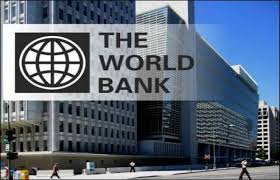Dr Adetunji Oredipe, Task Leader of the World Bank Assisted Agro-Processing, Productivity, Enhancement and Livelihood Support (APPEALS) Project says there are potentials embedded in public and private partnerships to drive agricultural development.
Oredipe said this during the Lagos State Agricultural Stakeholders Engagement, held in Lagos.
He said that the World Bank APPEALS project was invited to fine-tune and make suggestions that would help the state agricultural policies and strategies in the next four years.
“Today, we are discussing the agricultural strategy of Lagos State Government going forward in the next four years and in doing that, there are a number of elements that should come together.
“From the basic projects and policies that will be driven by the ministry, we also know that there are externally financed projects that will support such initiative, such as the APPEALS and FADAMA.
“We have been invited to be part of that discussion to give suggestions to fine-tune the state agricultural policy and more importantly to contribute from the point of somebody who has been supervising some of these interventions.
“We need to see that these interventions dovetail and add value to the overall objective that is being pursued in the sector,’’ he said.
Oredipe said that the Lagos State APPEALS had featured in many initiatives by the Federal Government, adding that the state had played a major role in FADAMA and other interventions.
According to him, Lagos is a place that has the market for agriculture and other items that are needed in the sector because it has the population, sea, rail and land advantages.
“We look at Lagos not only to serve as a critical state in the APPEALS project but as a state that will help us in the downstream side of what we have been doing.
“You know that the project is looking at the livestock sector, specifically poultry and rice where Lagos is doing a lot while partnering with other states,“ he said.
A former Permanent Secretary of the State Ministry of Agriculture, Dr Yakub Bashorun said that government could not work alone but there was need for a round-table to deliberate on development and way forward.
Bashorun said: “The Chinese saying that goes, nobody has a monopoly of wisdom, I think, is what is driving the state government to invite stakeholders to rub minds and develop a blueprint that they can now implement.
“On their own, they can’t sit at the ministry and think of what they feel are the farmers’ and stakeholders’ problems. The stakeholders are from the various sectors along the value chain of the agricultural business.
“They know where the shoe pinches and they will be able to tell government, this is where you need to pay attention, this is where you de-emphasise and this is how and when you do it.
“At this kind of forum, we identify partners that you can work with to deliver on the idea of the state governor to make Lagos a 21st century economy,’’ he said.
Bashorun said there were things government could do but there were things the private sector, which is where the business aspect come to play must do by themselves with the government supporting and providing enabling environment.
“However, there are areas that require public and private partnerships with multilateral organizations like the World Bank, FAO among others and APPEALS falls into this category to provide critical support to meet farmers’ needs, especially at the lowest ebb of production.
“Not big time farmers, but those struggling, and that needs a bit of assistance to cross the threshold of profitability and wealth creation,’’ he said.
He expressed hope that the road to providing a better Lagos for everyone by the Governor Sanwo-Olu-led administration would be successful.
The State Commissioner of Agriculture, Prince Gbolahan Lawal had earlier said that it had become necessary to engage stakeholders positively in the quest to improve productivity.
Lawal said that the growing population was propelling the need to achieve a potential percentage of food sufficiency in the state.
“With the growing population and the challenge of meeting food sufficiency, the state government is working hard to ensure that we produce potential percentage of what we consume.
“The government wants agriculture to feature prominently in the fourth pillar of the six agenda of the government to make Lagos a 21st century economy,’’ the commissioner said.
The stakeholder’s engagement was to draw a four-year roadmap for the agricultural sector of the state.
Stakeholders from all the value chains in agriculture were present to discuss and suggest way forward to develop the sector.


